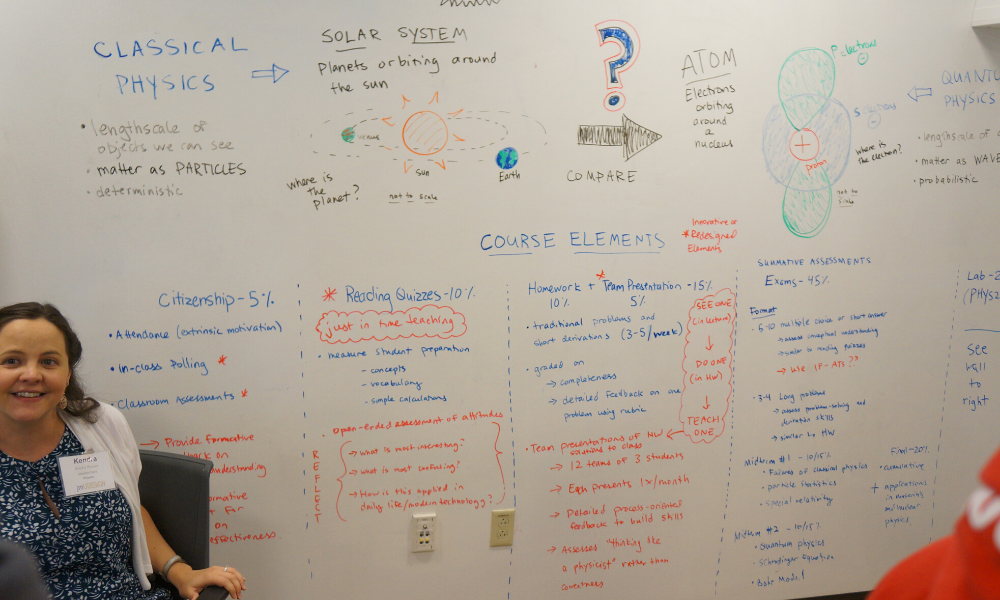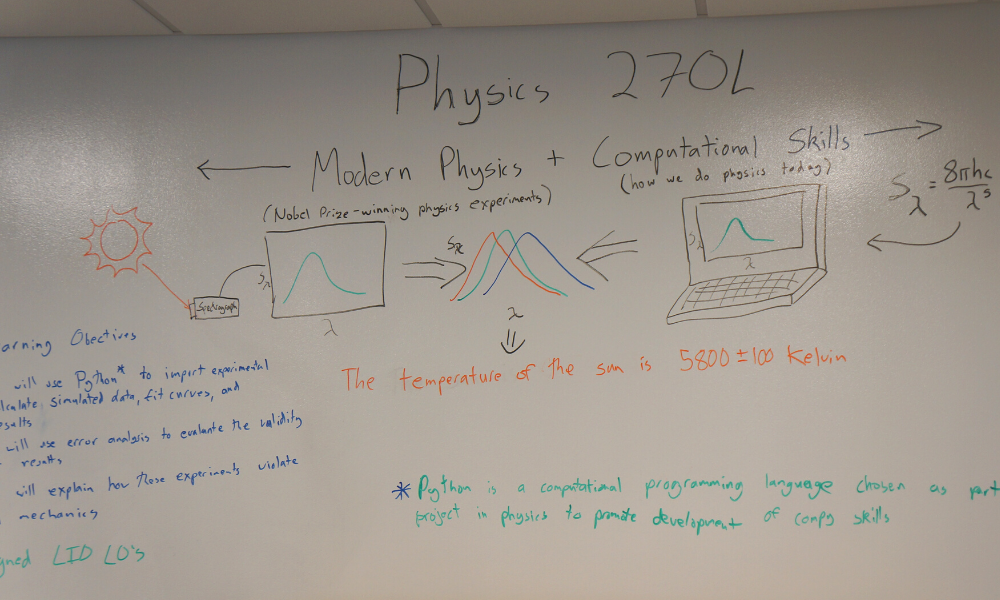The Learning Improvement by Design (LID) initiative is a joint effort between select academic units, the Center for Faculty Innovation (CFI) and the Center for Assessment and Research Studies (CARS). The purpose of the LID initiative is to support lasting change in how faculty and students work collectively to develop a sustainable culture of evidence-based student learning improvement.
Assessment, pedagogy, and faculty development specialists from CARS and CFI have worked with faculty in the Computer Information Systems, Communication Studies, and Physics program. An RFP has gone out to select the next department to participate in the LID project.
Goals of the Learning Improvement by Design program
Specifically, LID purposefully connects campus faculty development and program assessment specialists with academic program leaders and faculty to:
- Concentrate on select program-level student learning outcomes (SLOs),
- Develop or enhance program assessment methods,
- Collect baseline program-level student learning assessment data,
- Develop or enhance evidence-based curricular and course pedagogical interventions,
- Re-assess student learning to evaluate impact of interventions on learning, and
- Publish products and findings in reputable, peer-reviewed journals.
Learning Improvement by Design: Physics
During January 2017 and academic year 2018-2019, Department of Physics faculty and liaisons from the Center for Faculty Innovation (CFI) and the Center for Assessment and Research Studies (CARS) evaluated an identified program level student learning objective (SLO): “Develop competence in using computers for computation, data acquisition, numerical control, devise development and information acquisition and processing.” The team broke the SLO into four areas:
- Foundations,
- Interfacing, input and output,
- Processing and computing, and
- Troubleshooting.
The program also created a new computational competence assessment instrument and administered this to the 2018 graduating seniors majoring in Physics. Members of the LID team in the Department of Physics participated in 2018 jmUDESIGN workshops as a team to create a mapping of the student learning objectives supporting each of the four areas above with the new series of Physics labs planned for the curriculum. They have graded the first administration of the computational competence assessment instrument and established a baseline for judging change after pedagogical changes. Curricular changes are currently being made for the laboratory course sequence and weekly laboratory assignments are being modified or created to scaffold learning from introduction of the learning objective to mastery (part of this work was done during jmUDESIGN 2019). The mapped course SLO were used to create new signature assignments designed to improve Physics graduates’ computational ability.







